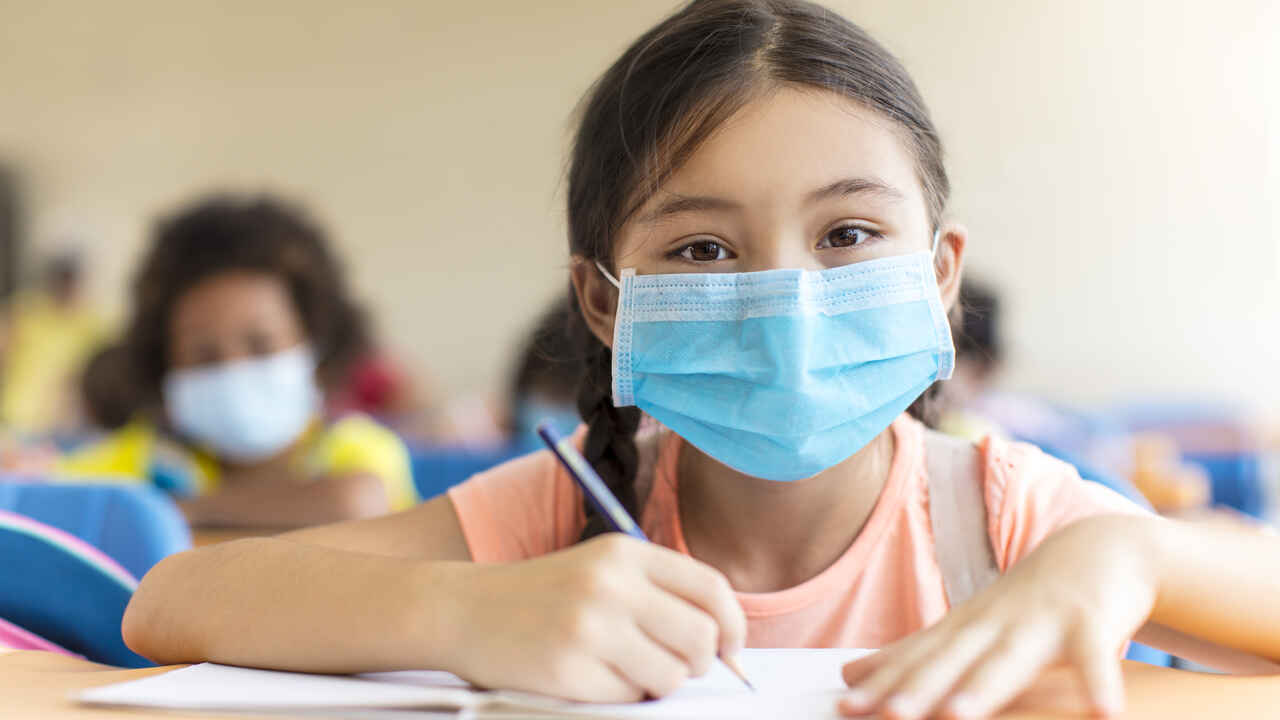
Here’s the best thing you can do to protect children from this very contagious variant, or any others.
The current omicron surge is a sure sign that the COVID-19 pandemic is not over yet. With its extreme transmissibility, parents are once again concerned about how this variant will impact their children’s lives.
COVID-19 cases among children have reached unprecedented highs in recent weeks. The good news is that most children have mild or no symptoms. But even though the majority of children don’t get seriously ill, there’s still cause for concern. Due to the total number of cases being so high, there are record numbers of children being hospitalized. And even though most don’t require hospitalization, symptoms can be more than “just a cold.”
Parents are also concerned about how the surge will affect their children’s lives in other ways. Some schools are temporarily switching to remote learning and activities have been cancelled. The “return to normalcy” children had been enjoying after a long hiatus has been put on pause while the omicron variant spreads rapidly.
So what can you do as a parent to protect your kids from omicron—and any other COVID-19 variant that may be circulating now or in the future?
The best defense against COVID-19 for children is to get vaccinated if they are eligible.
-
- Vaccines: Children ages 5 and up are eligible to receive the Pfizer-BioNTech vaccine, at doses that are age-appropriate. Vaccines for children include two doses, spaced 21 days apart. The only age group that cannot get vaccinated yet are children under age 5 (although a vaccine for this age group is expected sometime in 2022).
- Boosters: Children ages 12 and up are eligible to receive the Pfizer-BioNTech booster at least five months after their initial two-shot vaccine series has been completed. Children ages 5-11 are not yet eligible for a booster shot (although this may change in the future).
- Additional Doses: Children ages 5 and up who have medical conditions that make them immunosuppressed can get a third dose of the Pfizer-BioNTech vaccine as part of their initial vaccine series.
Some parents have concerns about getting their children vaccinated against COVID-19, but the vaccine has been shown to be safe and effective. Vaccines lower the chances of kids getting COVID-19. This is true even though there are more breakthrough infections with omicron than with other variants. If they do get infected, they’re less likely to get very sick. Although children typically don’t have severe symptoms, this is not always the case. Being vaccinated provides an added layer of protection. Not only do vaccines protect kids, but they slow the spread of the virus. This makes it less likely people in their lives will contract the virus and get sick.
In addition to vaccines, which are strongly recommended by public health experts and doctors for eligible children, other safety measure such as mask wearing, hand washing and social distancing should be followed in the midst of this COVID-19 surge.
Copyright 2022 © Baldwin Publishing, Inc. All rights reserved.
Health eCooking® is a registered trademark of Baldwin Publishing, Inc. Cook eKitchen™ is a designated trademark of Baldwin Publishing, Inc. Any duplication or distribution of the information contained herein without the express approval of Baldwin Publishing, Inc. is strictly prohibited.
Date Last Reviewed: January 12, 2022
Editorial Review: Andrea Cohen, Editorial Director, Baldwin Publishing, Inc. Contact Editor
Medical Review: Perry Pitkow, MD
Learn more about Baldwin Publishing Inc. editorial policy, privacy policy, ADA compliance and sponsorship policy.
No information provided by Baldwin Publishing, Inc. in any article is a substitute for medical advice or treatment for any medical condition. Baldwin Publishing, Inc. strongly suggests that you use this information in consultation with your doctor or other health professional. Use or viewing of any Baldwin Publishing, Inc. article signifies your understanding and agreement to the disclaimer and acceptance of these terms of use.